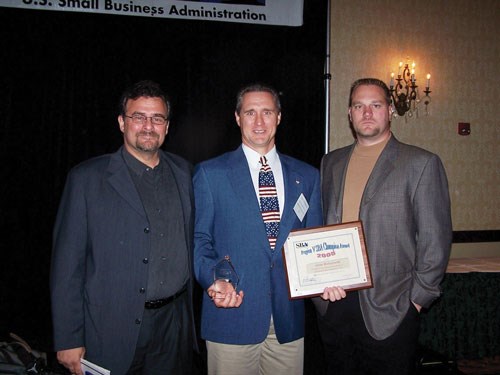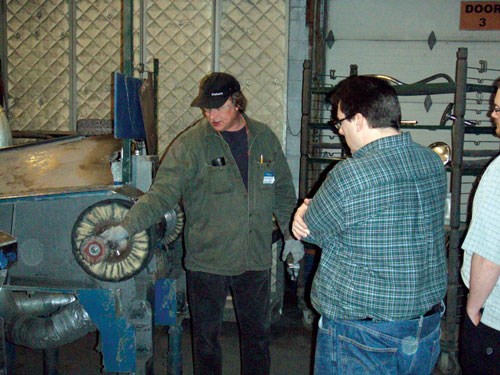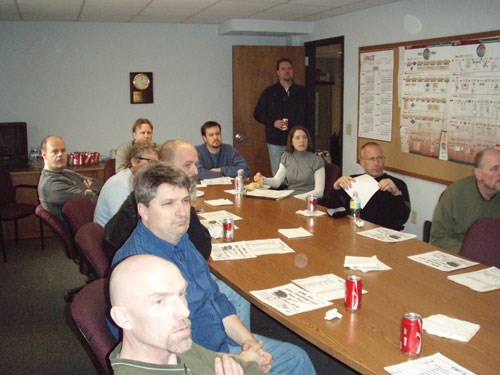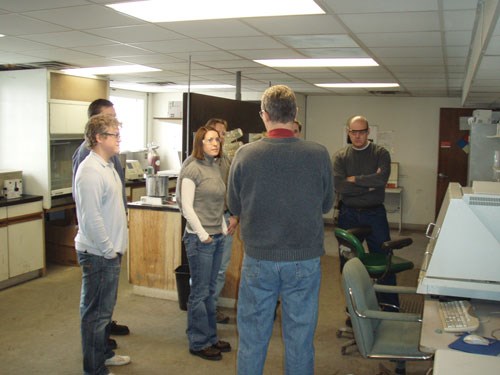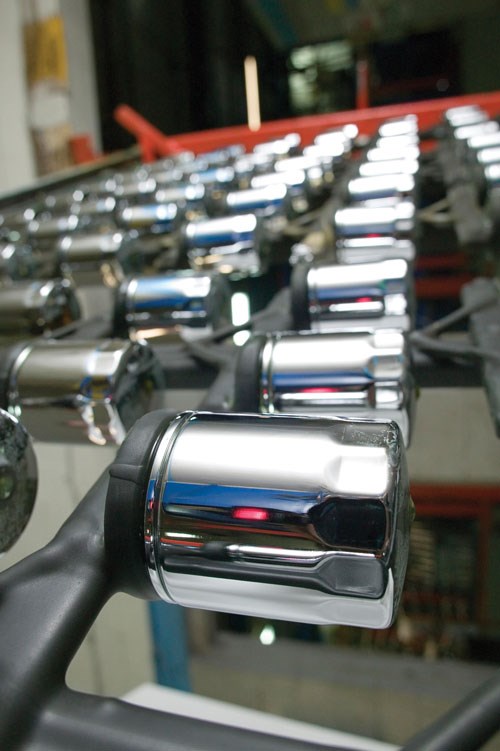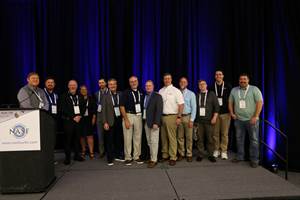Lean = Green for Reliable Plating Works/Elite Finishing
The benefits of lean operations in the plating industry are well known. Here's a story on how a $12 million company, Reliable Plating Works/Elite Finishing in Milwaukee, saved more than $1 million.
The benefits of lean operations in the plating industry—increased efficiency, profitability and agility—are well known.
Lesser known are the actual results and documented ROI that plating job shops can achieve by integrating lean and green strategies, such as minimizing environmental impact, reducing energy and raw materials usage, and emphasizing sustainable products and processes.
Sustainability and lean manufacturing are reflected in the Six Success Attributes of Next Generation Manufacturing program of the Wisconsin Manufacturing Extension Partnership, and they are ones that Milwaukee-based Reliable Plating Works know very well.
Founded in 1929, RPW employs more than 100 people at its facility where it plates parts for motorcycles, furniture, advertising displays, hardware, lawn and garden equipment, barbeques, paper dispensers, bicycles, appliances, and hand tools for clients such as Harley-Davidson, Master Lock, Kohler and In-Sinkerator. In 2006, the company purchased Elite Finishing, adding 35 more employees and the ability to plate decorative chrome on aluminum and brass substrates.
Brothers in Arms
The Maliszewski brothers—Jack, Jaime and Jeff—got started on their lean journey several years ago with the help of WMEP.
“Green isn’t just a trend or industry buzzword,” says Judy Sullivan, senior manufacturing specialist for WMEP. “It’s a serious business strategy for any manufacturer interested in becoming more profitable, efficient and environmentally responsible. Early adopters of lean and green stand to gain the most because they will attract new customers and be viewed as industry leaders.”
Sullivan points to the stellar results achieved by Reliable Plating since 2008, when it turned to WMEP to find ways to increase efficiency and reduce energy, waste and raw material costs. WMEP stepped in to facilitate Six Sigma Green Belt training, and a lean and green value stream mapping project.
RPW and Elite plate copper, electroless, sulfamate, satin, Wood’s, bright, duplex and triplex nickels, as well as decorative chrome, from small lots and small parts to parts as large as 108 inches long and 58 inches wide. They process aluminum, brass and carbon, cold-rolled, hot rolled and hardened steel using four large, fully automated and computerized plating lines.
Jack, Jaime and Jeff are the third generation of their family to run RPW. Their grandfather, Julian Maliszewski, bought the company in 1929, and his son John, the trio’s father, started working in the business in 1953. Jaime is the company’s president, Jack is executive vice president of production, and Jeff is vice president of quality. Though the company had a long history of being a leader in recycling and zero discharge technology, it wanted to take lean and green to the next level.
Multi-Pronged Attack
Over the course of its first two months in the program, RPW launched a multi-pronged attack on waste and inefficiency, and implemented measures to reduce raw material usage, air emissions and energy costs. As a result, the $12-million-revenue producing firm generated a total savings of more than $1 million, Sullivan says.
What’s more, Jaime Maliszewski says the improvements and savings helped the company stay profitable during the recession, at a time when many other firms were struggling.
“
You really have to think outside of the box,” Maliszewski says. “The first thing we discovered was that we had bad metrics that were understating our costs.”
Products enter the company’s electroplating machinery on a flight bar, and the labor cost metrics didn’t fully take into account whether the flight bars carried products or were empty.
After a careful analysis, the company revamped its heat-intensive plating operation to run continuously, three days per week instead of two eight-hour shifts, five days a week. That alone sparked a 25 percent reduction in energy costs, saving RPW more than $100,000 annually.
In addition, start-up related rejects were reduced by 80 percent. Employees now work 12-hour shifts and three-day weeks, enjoying fewer commutes, more time with their families and lower daycare expenses. This lowered labor costs by 10 percent as people were working 36 hours per week instead of 40, and the plating lines had 69 hours of production (1.5 hour startup, 1.5 hour unload) compared to 65 hours working two eight-hour shifts, five days a week (7.5 hours startup, 7.5 hours unload).
Saving On Nickel
The firm’s biggest expense was nickel, which prior to 2008 ran as high as $27 per pound and sent shockwaves through the industry. It is now between $8 and $10 per pound.
A trained team of Six Sigma Green Belts tackled the issue of reducing nickel waste in the plating process, generating a savings of 14 percent, or about $200,000 a year.
The company is proud to have four Green Belts in its ranks, Jaime Maliszewski says. He adds that RPW’s adoption of lean and green strategies are a strong competitive advantage in the marketplace.
“When customers see you’re doing things smarter and better, they have more confidence in using you as a supplier,” he says. “They know you’re proactive and that you’ll be around in the future.”
In addition, RPW started a unique event to educate its customers on its processes. “Plating Education” seminars were held at the plant, attended by more than 75 people representing more than 25 companies, including OEMs and job shops. Attendees were treated to lunch and a guided tour through the plant that detailed the metal finishing process. They went through the polishing, buffing and degreasing processes, and then viewed the automated plating lines from the operators viewpoint, seeing first-hand how products go through pretreatment and cleaning. The group then viewed the many plating options.
Classroom Training
The customers also visited the lab where chemistry is tested, verified for use and tracked on a very extensive system. Attendees finished in a classroom and learned about the cost drivers involved in the metal finishing process, quote requirements, process and metal selection, and more.
Jaime Maliszewski says platers—especially those wanting to survive in today’s economy—should understand that lean and green is here to stay.
“Companies who don’t take this seriously are going to be pushed out,” he says. “Looking back, I’m not sure we’d be in business today if we hadn’t started on this path.”
Sullivan gives the company high marks for its commitment to its employees, customers and community.
“Reliable Plating realized early on that business practices that protect the environment in the future can pay substantial dividends today,” she says. “Given the state of the economy, this should be a high priority for any small or mid-size manufacturer.”
Related Content
Products Finishing Reveals 2023 Qualifying Top Shops
Each year PF conducts its Top Shops Benchmarking Survey, offering shops a tool to better understand their overall performance in the industry. The program also recognizes shops that meet a set of criteria to qualify as Top Shops.
Read MoreSuccessful South African Plater Beating the Odds
Remaining focused on quality and reliability, Team Plating Works stays profitable in a volatile and challenging economy.
Read MoreHow to Maximize Nickel Plating Performance
The advantages of boric acid-free nickel plating include allowing manufacturers who utilize nickel plating to keep up the ever-changing regulatory policies and support sustainability efforts.
Read MoreInnovation in Plating on Plastic
Plating on advanced plastics solution offers improved adhesion, temperature resistance and cost savings.
Read MoreRead Next
Episode 45: An Interview with Chandler Mancuso, MacDermid Envio Solutions
Chandler Mancuso, technical director with MacDermid Envio discusses updating your wastewater treatment system and implementing materials recycling solutions to increase efficiencies, control costs and reduce environmental impact.
Read MoreA ‘Clean’ Agenda Offers Unique Presentations in Chicago
The 2024 Parts Cleaning Conference, co-located with the International Manufacturing Technology Show, includes presentations by several speakers who are new to the conference and topics that have not been covered in past editions of this event.
Read MoreEducation Bringing Cleaning to Machining
Debuting new speakers and cleaning technology content during this half-day workshop co-located with IMTS 2024.
Read More

